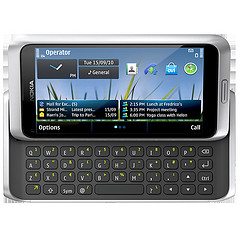Will New HTML Unlock the True Power of Smartphones?
 Photo: Nokia Connect
Photo: Nokia ConnectA new report from the consultants at McKinsey touts the impact that a new generation of HTML code will have on the world’s smartphones. HTML is the programming standard that’s the backbone of the Internet. The latest version, HTML5, will essentially allow mobile programs to run through a Web browser rather than a specific operating system. That means consumers will be able to access the same programs and cloud-based content from any device—PC, laptop, smartphone, or tablet—because the browser is the common platform. The McKinsey report calls it the “the most significant evolution yet in Web standards,” and warns senior executives to take note:
[L]ike the exponential growth of device-specific applications, this evolution of HTML will further boost the power of mobile devices, accelerating changes in the way people consume content and the potential use of smartphones and tablets as both a marketing platform and a productivity tool.
The report likens today’s fragmented mobile market to the early days of the PC, before Microsoft DOS and Windows, when users had to choose between several systems with an array of capabilities. HTML5 will narrow the differences between smartphone devices, the report argues, largely by doing away with plug-in software and other work-arounds that are usually required to run video and other multimedia content.
In theory, this will make the browser a universal computing platform: without leaving it, users could do everything from editing documents to accessing social networks, watching movies, playing games, or listening to music. Not only would any device with a Web browser have these capabilities, but consumers would also have access to all content stored remotely “in the cloud,” independent of locations and devices.

Comments